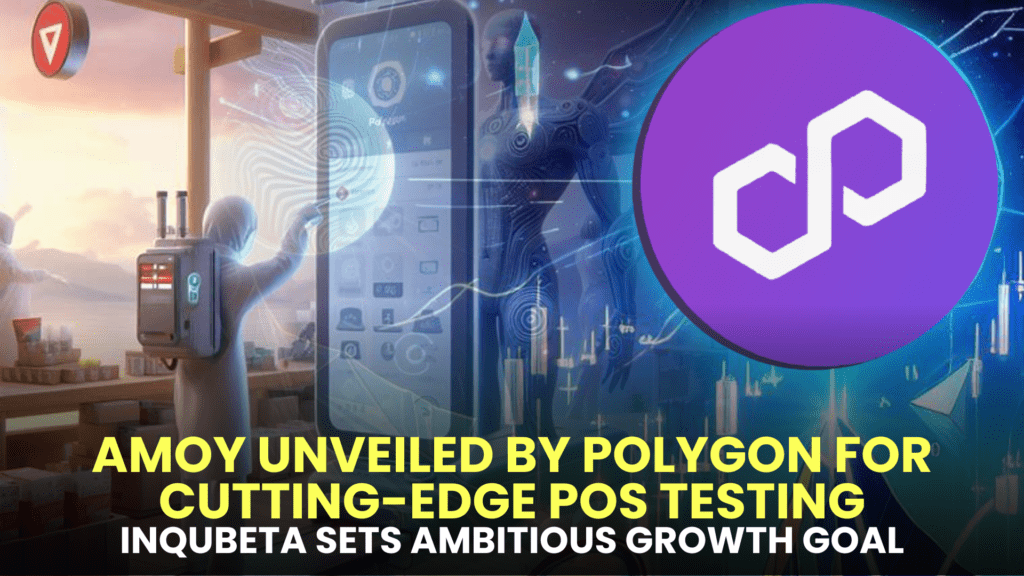Polygon’s Leap with Amoy Testnet
The crypto world is witnessing groundbreaking developments and ambitious growth targets. Polygon, a prominent blockchain player, has recently launched a new Proof of Stake (PoS) testnet named Amoy, marking a significant stride in blockchain technology. Meanwhile, InQubeta, an AI-focused cryptocurrency ICO, is setting its sights on a staggering 5,000% growth target, showcasing the vast potential of AI integration in the digital currency space.
Polygon’s Introduction of Amoy Testnet
Polygon’s introduction of the Amoy testnet represents a crucial advancement in its blockchain infrastructure. Based on Sepolia, Amoy is equipped with essential tools such as basic validators, comprehensive infrastructure, and a faucet. This environment is invaluable for developers, providing a simulated platform that mirrors real-world conditions of the Polygon network. It allows for thorough testing and optimization of applications, ensuring their effectiveness and reliability before deployment on the main network. This development underscores Polygon’s commitment to fostering innovation and supporting the broader blockchain ecosystem.
InQubeta’s Visionary Journey and Growth Aspirations
Amid all these tech breakthroughs, InQubeta (QUBE) is setting out on an exciting path in the AI crypto world, aiming for a whopping 5,000% growth. Their journey started with a simple yet powerful goal: to make investing in AI startups easy and accessible for everyone, not just the big shots in Silicon Valley.
InQubeta’s crowdfunding platform is like a bridge, connecting investors and AI startups through their QUBE tokens. They’ve totally shaken up how we invest, making it possible to own a piece of an AI startup without breaking the bank. Investors get to scout and buy NFTs that startups create, which could represent a share in the company or some cool rewards. This approach is a game-changer: it gets startups the funds they need and lets investors ride along with the success of these cutting-edge AI companies.
The heart of InQubeta’s ecosystem is the QUBE token. It’s not your average crypto to buy; it’s a deflationary ERC20 coin with a special tax setup that really encourages hanging onto it for the long haul and rewards those who stake their tokens. This fits perfectly with InQubeta’s aim to nurture long-term growth in AI tech. The platform’s recent presale, crossing $8.5 million, just goes to show how much investors are getting behind this idea.
Looking to the future, InQubeta’s got big plans. They’re talking about launching an NFT marketplace, InQubeta swap, a DAO, and even expanding across different blockchain networks by 2024. With this kind of forward-thinking, InQubeta is not just keeping up in the AI cryptocurrency race; they’re leading the charge.
Conclusion
The stories of Polygon’s Amoy testnet and InQubeta’s soaring growth ambitions paint a vivid picture of the evolving crypto landscape. On one hand, Polygon is deeply invested in refining blockchain infrastructure, while on the other, InQubeta is ambitiously pushing the boundaries in AI investments. Together, these narratives underscore the limitless possibilities these technologies hold, and those who take a chance may reap significant rewards.


